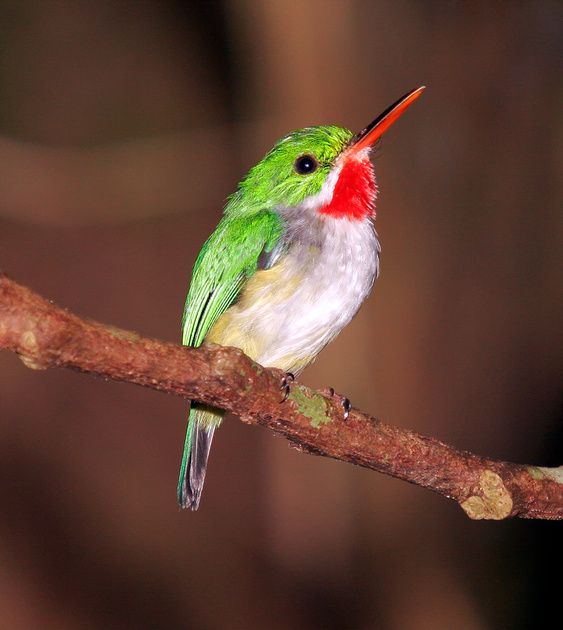- cross-posted to:
- earth@hexbear.net
- cross-posted to:
- earth@hexbear.net
The hawfinch (Coccothraustes coccothraustes) is a passerine bird in the finch family Fringillidae. It is the only species placed in the genus Coccothraustes. Its closest living relatives are the Chinese grosbeak (Eophona migratoria) and Japanese grosbeak (Eophona personata) of East Asia, and the evening grosbeak (Hesperiphona vespertina) and hooded grosbeak (Hesperiphona abeillei) of North America. Its large bill used for breaking open seeds and fruit stones is a distinguishing feature. They are mostly brown, with dark brown back, with white and black wing feathers and an orange/brown head. Their belly is a buff colour with a clear black bib that circles the bill and eyes. Hawfinches are found in large areas of mature broadleaved woodland, favouring areas with open glades. Shy birds, they can be extremely difficult to find in summer, remaining high in the canopy and rarely calling. In winter, numbers are boosted by continental migrants, and birds are easier to spot in leafless trees. They build a rather untidy nest of twigs, grass and lichens in which the light blue eggs with black markings are laid. The choice of nest site is often in a remarkably open position in a fork of a woodland tree or fruit tree. This makes them incredibly vulnerable to nest predation from a range of egg- and chick-eating predators such as the grey squirrel, the corvid family (particularly jays) and also woodland raptors such as sparrowhawk and goshawk. The hawfinch lays 2–7 eggs. The food is mainly seeds and fruit kernels, especially those of cherries, which it cracks with its powerful bill. This large finch species is usually seen in a pair or small group. The hawfinch feeds primarily on hard seeds from trees, as well as fruit seeds, which it obtains with the help of its strong beak with accompanying jaw muscles. Its jaw muscles exert a force equivalent to a load of approximately 30–48 kg. Thus it can break through the seeds of cherries and plums. The song is a quiet whistling sound interspersed with call notes, rather guttural, without any musical notes “tchi-tchi… ter-ui-ui”. Here is a link so you can listen to this bird too.

